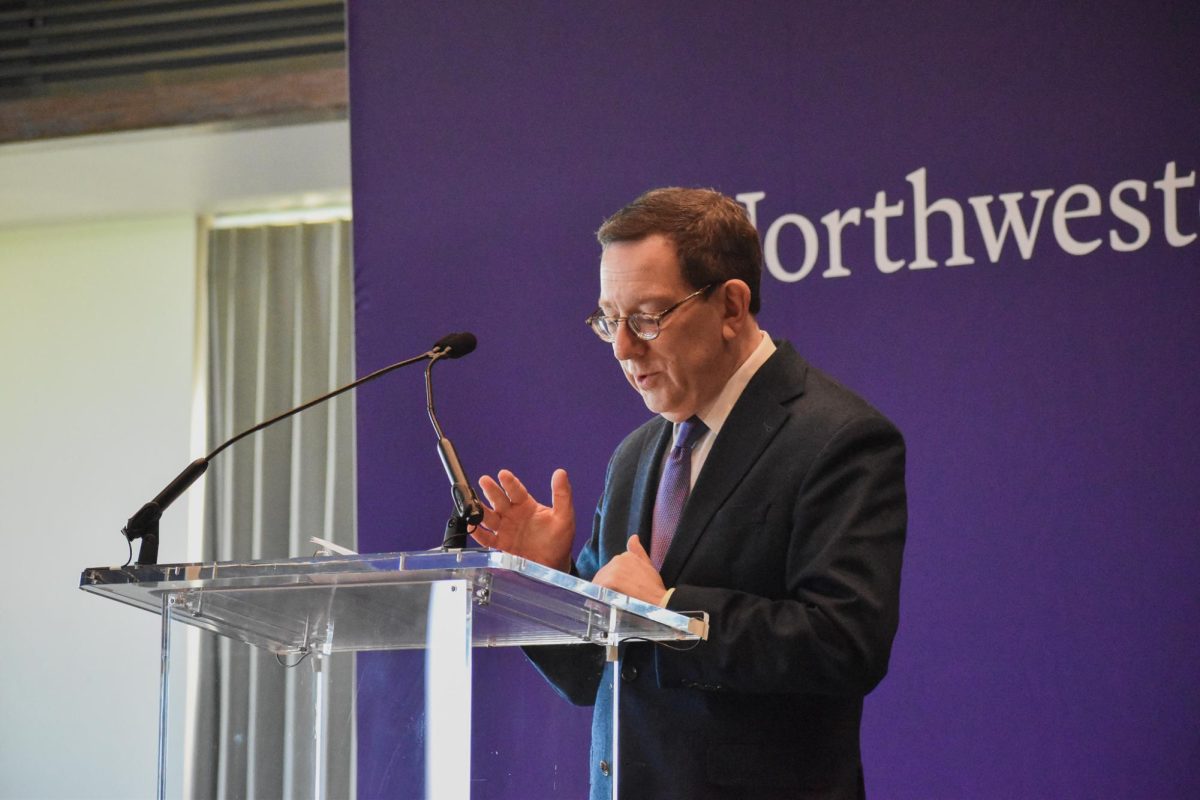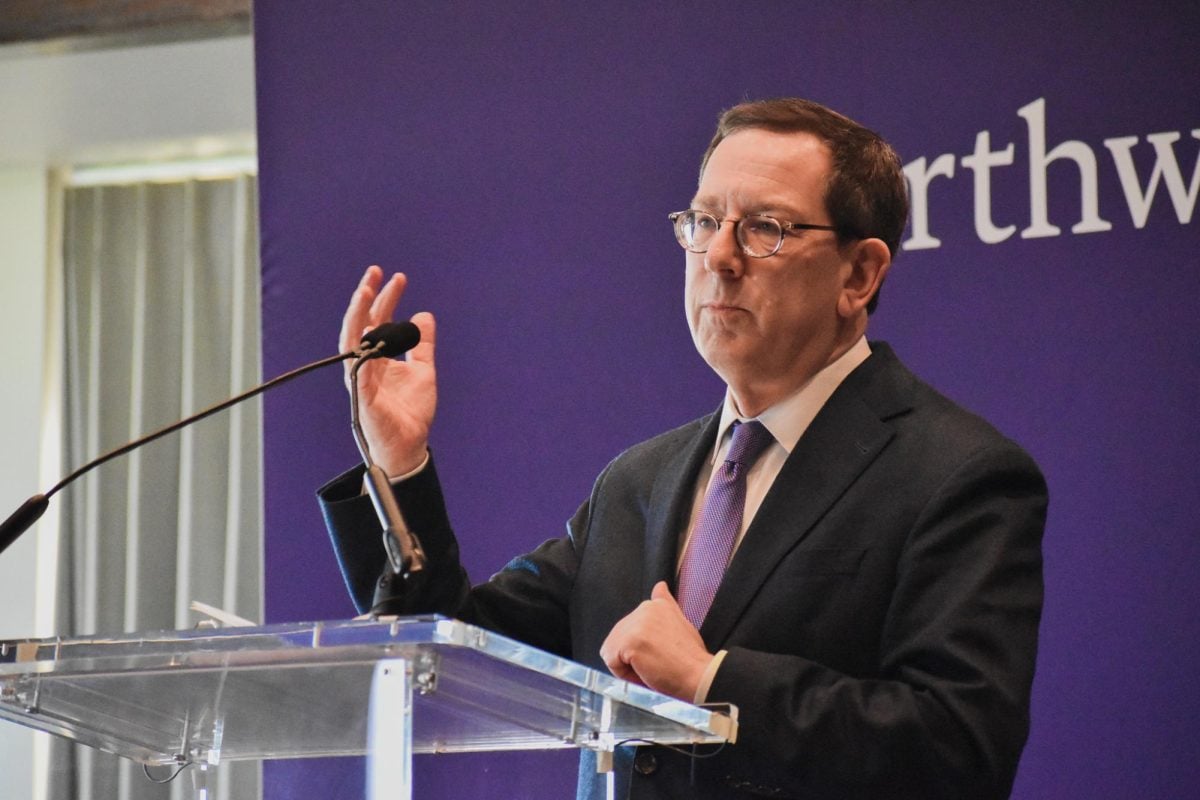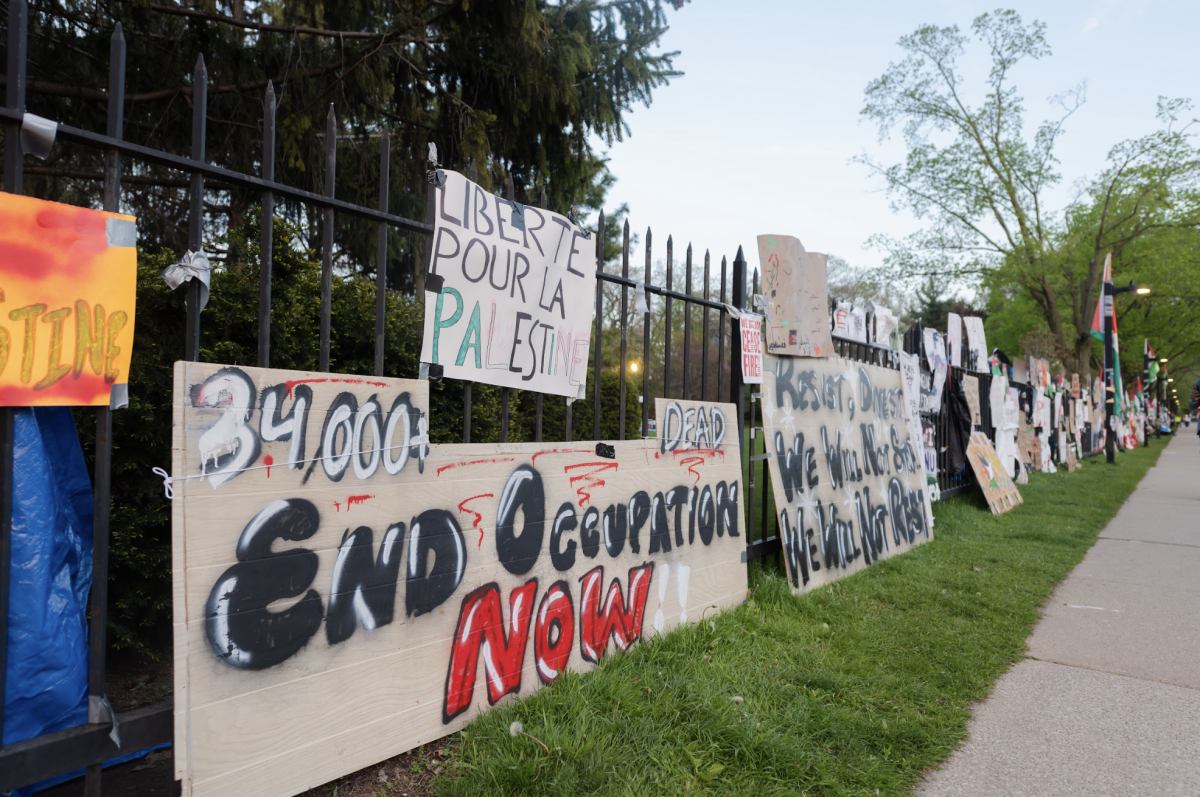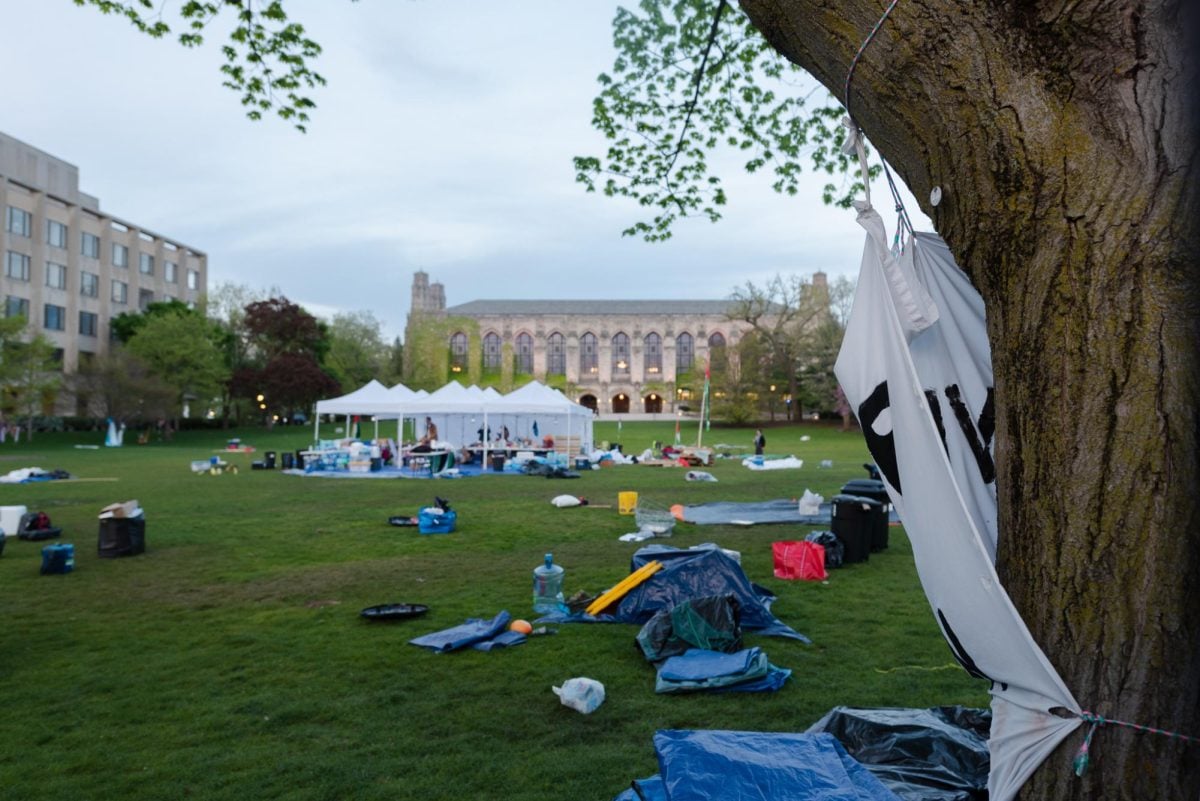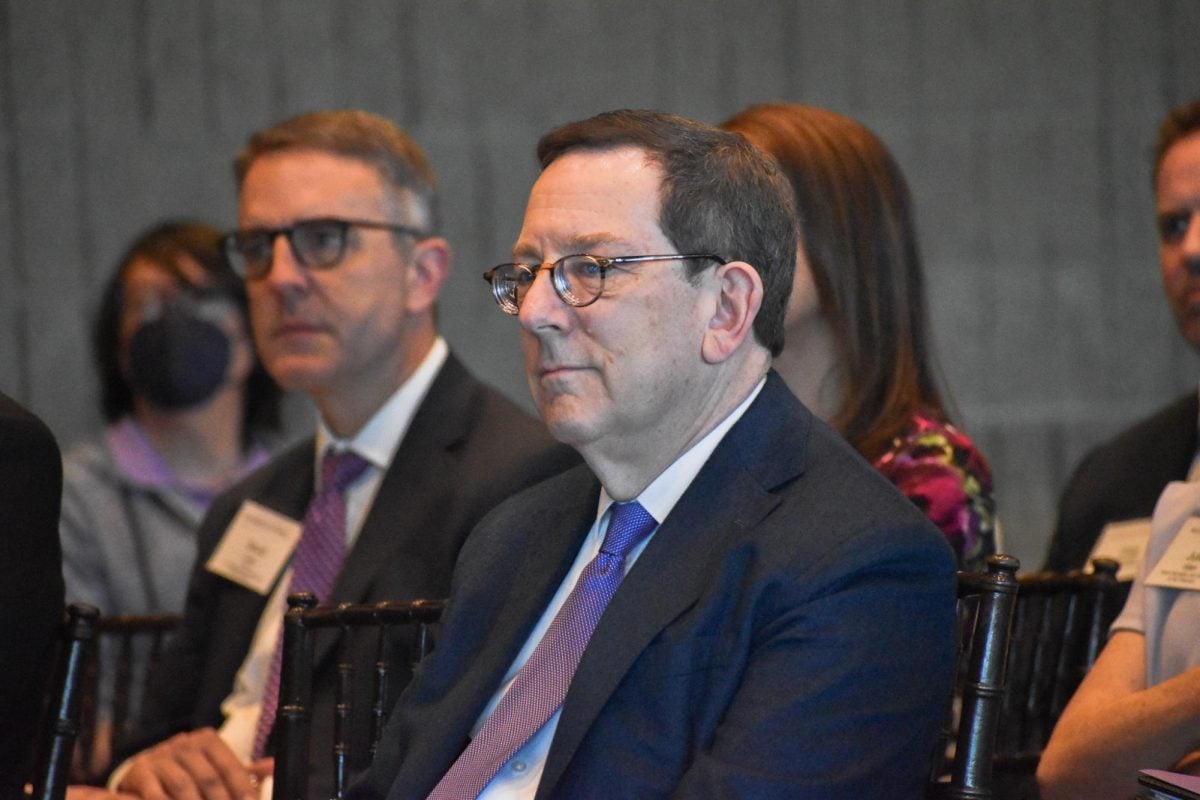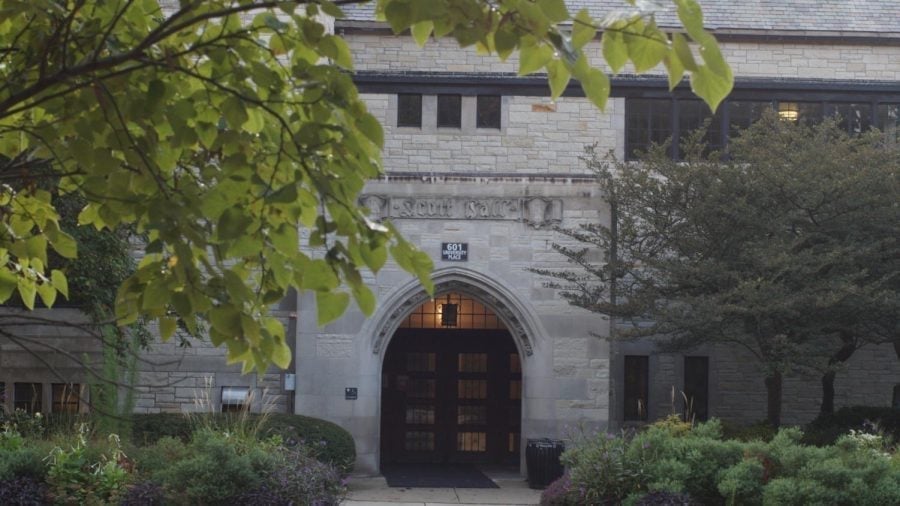Northwestern president Morton Schapiro and three other top administrators led a panel discussion on Sunday about improving cultural education and safety at NU. The discussion continued for more than three hours.
About 250 students attended the discussion, which was sponsored by The Coalition of Colors, an organization that includes Alianza, For Members Only, the Asian Pacific American Coalition, the Muslim-cultural Students Association and South Asian Student Alliance. Weinberg sophomore Benjy Leibowitz moderated the panel, which took place in McCormick Auditorium.
John Marquez, assistant professor of African-American and Latino/a Studies, introduced the panel with a discussion of what he has learned as a professor from his minority students. Several students in attendance snapped and applauded at points during Marquez’s statement.
“They feel like this university is a white university,” Marquez said. “It seems as if they perceive themselves as mere props in a political game.”
Racial issues recently came into the campus spotlight Jan. 12, when Weinberg senior Tonantzin Carmona reported being harassed while walking home by a group of girls walking behind her.
Along with Schapiro, Vice President for Student Affairs Patricia Telles-Irvin, Dean of Students Burgwell Howard and Provost Dan Linzer helped lead the dialogue.
A whiteboard on stage laid out six points of emphasis, including minority enrollment and the University strategic plan released Nov. 1. “Diversity and inclusion” was one of the four pillars expressed in the plan.
Schapiro praised the students in attendance for taking time to engage in a dialogue on racial issues on campus and was critical of himself and his fellow administrators for dropping the ball at times.
“The best ideas come from the students, and we have to be smart enough to get out of the way and make them a reality,” he said. “In academia we’re much better at selling diversity than actually embracing it.”
The loudest applause of the night was reserved for students who challenged the administration not to pass full responsibility onto the students.
“You said that things are going to happen every year and that’s just how it is and it’s how we react to things,” Weinberg junior Sandra Garnica said. “This forum has been formed because we’re tired of things happening every single year. We’re tired of having to organize these forums and have these stories keep coming up every single year.”
When the possibility of a University-wide cultural integration distribution requirement was raised, Weinberg junior Will Bloom said the administration has not always listened to student requests regarding the curriculum.
“While we can say that undergraduates will be listened to when deciding course offerings, that’s not the history of this institution,” Bloom said. “We have African-American studies because students in the ‘60s took over the Bursar’s Office because no one would listen to them and we have Asian-American studies because students staged a multi-week hunger strike because no one would listen to them.”
After the discussion, Howard said it was “good to hear what students were thinking” and positive for students to hear from the administrators, who are capable of making changes.
Howard also said two take-aways for him were Telles-Irvin’s emphasis on future communication about administrative progress and Schapiro’s desire to have “touch points” in the future to measure the University’s success in improving inclusion.
Ricardo Sanchez, a fourth-year graduate student in the sociology department, spoke during the discussion about the nature of institutions and a possible disconnect between students’ views on diversity and administrators’ views, making them “not on the same page.”
Still, he said he thought the discussion had value.
“I think at the end of the day, there was an energizing recognition,” he said. “We can keep this many people talking for three hours about something that is very hard to talk about.”
Leibowitz, who said he was selected to moderate for a variety of factors including his past involvement with FMO and Alianza events, said he was “semi-happy” with how the discussion panned out.
“I don’t think it was a failure,” Leibowitz said. “Administrators were made to feel uncomfortable and not just to sidestep the issues.”
Leibowitz said that discomfort, which another student remarked on during the event, saying the administrators’ body language indicated they “might not be interested” in the discussion, may have been part of the organizers’ goal.
“(It shows) students are analyzing every aspect of their decisions, and they’re not impressed,” he said.
Weinberg junior Hayley Stevens, co-president of Alianza, said the topics addressed during the discussion are all issues the organization has been “working and fighting for” for “a very long time.” She said that may not have translated as well as she would have wanted.
Looking forward, Stevens said she agreed with Marquez’s assertion that change happens from the “bottom up.” She said she hopes to continue having conversations with administrators and involving and engaging fellow students.
When speaking on the issue of minority enrollment and representation at universities across the nation, Schapiro said NU cannot afford to settle for being equal with its peers.
“If we can be a leader, that would be a great place to be,” he said. “But we’re not right now.”
Maria LaMagna contributed reporting.
This article has been edited for clarity. The event was sponsored by the Coalition of Colors, and the article now reflects that. The Daily regrets the error.

